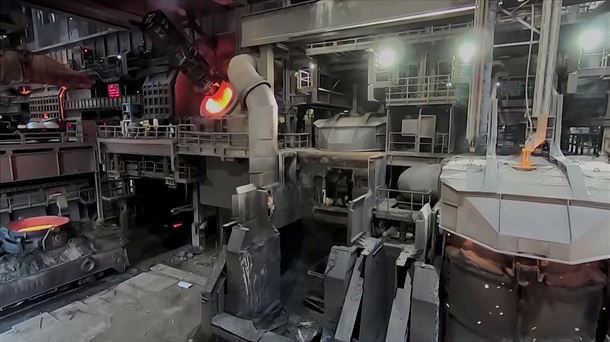Thyssenkrupp to cut 11,000 jobs in steel business, 40% of workforce

In particular, the German steel company, which employs about 27,000 people, is considering laying off about 5,000 workers by 2030 and outsourcing another 6,000 jobs.
This Monday, Thyssenkrupp Steel Europe announced the keys to its industrial strategy for the future, aimed at addressing the challenges associated with excess capacity And pressure on the competitiveness of cheap imports, especially from Asiaincluding adjusting 40% of its workforce in the coming years by laying off around 5,000 workers through 2030 and outsourcing a further 6,000 jobs.
According to the German steel company, the implementation of the document on key issues “will be accompanied by significant job cuts” and other measures to reduce personnel costs.
As part of its plan, with the stated goal of avoiding layoffs for operational reasons, personnel costs will be reduced by an average of 10% in the coming years, thereby bringing them to competitive cost levels.
“We will adapt to new market conditions through capacity adjustments and targeted cost reductions,” said the CEO of Thyssenkrupp Steel Europe. Dennis Grimmwhich require “comprehensive optimization and rationalization” of the production network and processes.
“We recognize that this path will require a lot from many people, especially since we will have to cut a large number of jobs in the coming years to be more competitive,” said a top executive at a steel company whose workforce includes about 27,000 military personnel. .
Last week Thyssenkrupp announced the registration losses 1.4 billion euros at the end of the financial year, representing a 30% reduction in “red figures” of about 2,000 million euros compared to the previous year, after assuming an adverse impact of 1,200 million due to the deterioration in the value of its assets, mainly steel business in Europe (“Steel Europe”).
Last Friday it was Bosch which announced an adjustment plan that includes laying off 5,500 workers in the group’s mobility division as weak demand for electric vehicles and the emergence of Chinese competition worsens the crisis in the auto sector in Europe.
